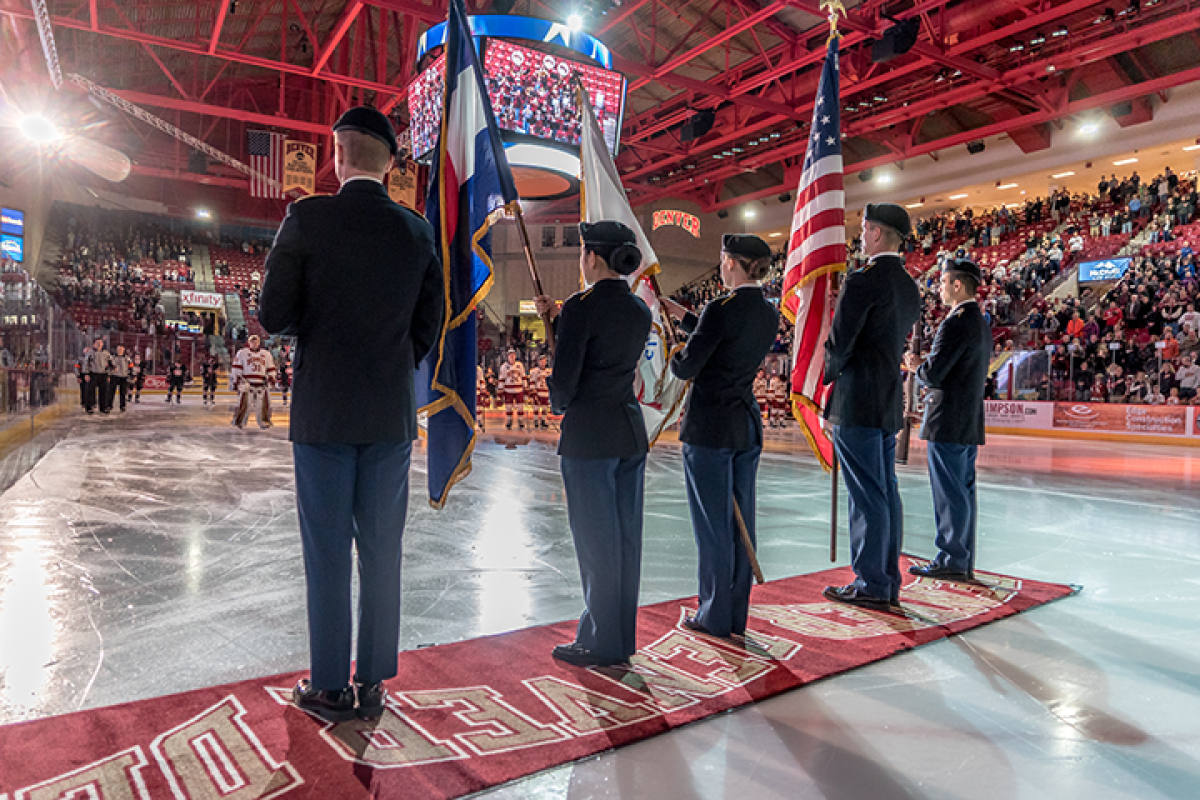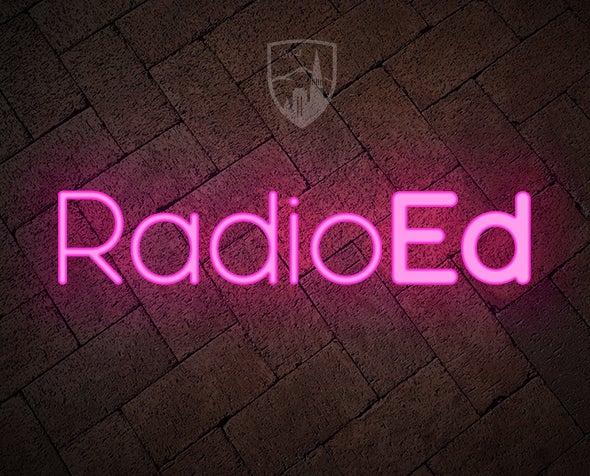Veterans, Service Members Traumatized This Veterans Day

The “Thank you for your service” platitude rings hollow indeed on Veterans Day 2021.
While the United States’ exit from the 20-year war in Afghanistan might feel like old news to you, that Aug. 30 event still resonates as an excruciating moral injury for more than 450 G.I. Bill students at the University of Denver.
Many military members in Afghanistan either saw things or took actions that went against their moral code, says Erica Adkins, a professor in the Graduate School of Professional Psychology.
For example, “The rules of engagement prohibit us from firing on women and children. It just goes against who we are,” says Adkins, a veteran and faculty director of the military psychology concentration in DU’s Clinical Psychology Doctoral Program.
But with Afghan women and children carrying suicide bombs, U.S. fighters had no choice.
Service members also must complete their mission. That’s an order. But this mission went unfulfilled, though at least 2,461 U.S. service members died there — including the 13 killed Aug. 26 as the U.S. ramped up its departure. Eleven Marines, one Army soldier and one Navy sailor died that day.
Also killed during our nation’s longest war: 3,846 U.S. contractors, 47,245 Afghan civilians, 66,000 Afghan military and police, 1,144 NATO allied fighters, 444 aid workers and 72 journalists, reports The Associated Press.
That’s 121,212 deaths. Oh, and 51,191 Taliban and other enemies died too.
Yet it’s another statistic that should shock every civilian to the core, as reported Oct. 19 by Brown University’s Cost of War project:
The suicide count among veterans and service members is more than quadruple the 7,057 service members killed in post-9/11 wars.
“Powerlessness doesn’t begin to describe the feeling,” Adkins says. “We didn’t complete what we said we were going to do.”
Moreover, thousands of Afghans who helped U.S. forces were left in their country. “Translators, we guaranteed to keep you safe. When we fail to do that, that hits hard,” she notes.
Damon Vine, DU’s director of veteran services, says his military friends still feel the aftershocks.
“Afghanistan is so incredibly difficult to process,” he says. “Many of my friends, even those who didn’t deploy to Afghanistan, are having difficulty discussing their thoughts about what happened.”
George Ganbold, an Army veteran and DU finance student and rugby team member, struggles to explain that sorrow to a civilian.
“With our veteran brothers, we were willing to die on that soil. We trusted our leaders’ ultimate plan,” Ganbold says. “But the way we did leave left us in shambles. A lot of questioning, tears. We remember those who gave the ultimate sacrifice. We were so many pieces of the puzzle.”
He had succeeded at every turn and aimed to become an Army Ranger. Then he developed asthma from poor air quality in Kabul and learned he has a higher risk of cancer because of everything he inhaled.
The Army pushed him out. Suddenly, he says, “I was seen as a liability, not an asset.”
Some people seem to view veterans as a liability, too. Civilians, including many DU faculty, generally are clueless about military experiences and sacrifices. Or they have preconceived opinions that are, well, ill-conceived, veterans say.
Whenever he hears about a shooting, “I immediately think: Don’t say PTSD. The stigma is (there) if that person served. Everyone in the military is not a trained killer,” says 23-year Marine Paul Scudder, a DU master’s candidate in International Security:
“It’s such a misnomer. I know so many vets with PTSD who aren’t violent,” says Scudder, who served in Bosnia, Kosovo, Iraq and Afghanistan. “What you see on the news isn’t the whole truth. Veterans are people. We have good days and bad days.”
The stigma exists, Ganbold says, because of “the radicals, who are the loudest, the ones who act out. There are the silent majority who work hard, take care of our families, are gentlemen and ladies and first-class citizens. We don’t want to be represented by (the radicals).
“I know DU professors aren’t dumb; they want to be considerate. We want to be treated like the others, but also – if we have heightened sensitivity toward the niche of minorities [Native Americans, Blacks, etc.], we’re the niche of the niche,” he says. “We are the 1% who volunteered to be in the military. If you really want to treat people equally, the veteran community also should be recognized.”
Adkins and Ganbold suggest professors with an authentic interest might want to meet privately with their veteran students to better understand their experiences and perspectives. Anyone with an honest interest only needs to ask – and listen. Each veteran’s experience is unique, and most are happy to sit and discuss it.
As for the service members and veterans themselves, many, like Ganbold, are proud to undergo counseling and other therapies to enhance their lives after their service
“If you’re a war veteran, you need counseling,” Ganbold says. “We have to look out for each other … It’s OK to be different as a vet and not always shoot guns and drink whiskey. You don’t have to be stuck. There’s room to grow and try out new things in the veteran community.
“I will be singing the National Anthem on Nov. 12 at the DU hockey game. Come see we’re not all hard asses. All the vets are going to be there – all the friends, all the families, we’re always there. They dedicate that night to us, and it’s huge. It’s wholesome. Nov. 12 against Western Michigan. Be there!”








